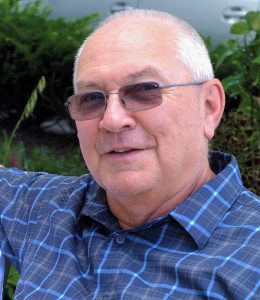“Go Back To Where You Came From!”
“Go Back To Where You Came From!”
Amos, The Unwanted Prophet: Part Two
Amos alone among the prophets refers to Israel as “The House of Isaac.” He is also the only prophet who mentions the Yahweh shrine at Beersheba (to the South of Tekoa) which was founded by Isaac. Isaac was the father both of Jacob and Esau, forefather of the Edomites, and they in turn were semi-nomadic neighbors of the Tekoans to their immediate south. Amos may have had a special regard for these Edomite neighbors of his, perhaps even thinking of them as brothers. They were highly regarded in Old Testament times for their clan wisdom as were the Tekoans.
Seldom was a prophet so out of step with his times. Not since the days of King David had Israel been as powerful or prosperous as right then. King Uzziah of Judah and King Jeroboam of Israel were the rulers at this time. More precisely, it was two years before a certain earthquake, which was dated to the year 760 on the basis of archaeological evidence from the north-Galilean city of Hazor. This would locate Amos in the middle years of the long, exceptionally prosperous reigns of these kings.
Miriam and Amos are again sitting in the shade at their favorite place in the cool of morning sun as it slowly lights up the view of the world below them. This is their favorite time of the day before any work begins to spend some time together if even for a few moments.
“I am sure you were too tired last night after your journey,” Miriam was anxious to ask, “but how was your trip?”
“It went well,” Amos began. “The only problem that each time I travel to Jerusalem, even for the celebrations, I come away angry at the haughty looks I get from the arrogant people that live there.”
“I am sure it is because those people don’t know what real work is like, except for the poor laborers that slave for them,” Miriam tried to soothe him, since he seemed more irritated this time.
“I have no problem with how I look, but I am sure my mannerisms and even my attitude causes me to stand out,” Amos said a little irritated. “But what always gets to me is their attitude, like Jerusalem is God’s chosen city and King David his special chosen dynasty!”
“Well, I can sympathize with you,” she said.
“But what really irks me is all those senseless sacrifice of animals!” he almost spit it out.
Now Miriam has realized what really bothers him. “I know what you mean, Amos,” Miriam again tries to consol him. “But my worry is how will they receive you when you get to Bethel in the Northern Kingdom and give them Yahweh’s warning?”
“It will not be with open arms of love,” Amos replied a little sarcastic. “But I do have a plan how to deliver the message. And once I am done then I can wash my hands of them and their abominable temples and sacrilegious practices.”
Miriam said a little worried, “Just take care of yourself, Amos. When are you planning on leaving?”
“Shortly,” Amos replied, “after I get some rest. I am thinking of taking Joshua with me.”
“He is old enough to travel and it would be a great experience for him,” she said. “Do you think it will be safe for you both?”
“Yes. Normally I would not be certain, except…” Amos paused, “Yahweh promised my safety!”
Miriam reflected for a moment, somewhat surprised. “Amos, I have the feeling that Yahweh really needs you to deliver his message.”
Amos only answers, “God does nothing, without revealing his secret to his servants the prophets. If they do not listen, then God acts.”
Miriam can only shudder what the Lord God Yahweh will do.
Go Back To Where You Came From pt 2
Go Back To Where You Came From pt 1
AMOS Intro

